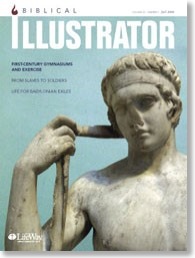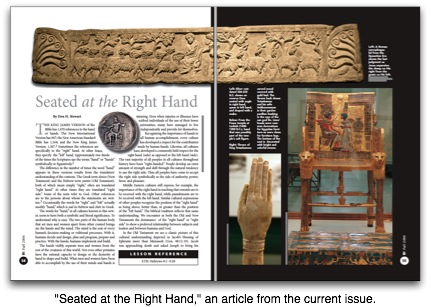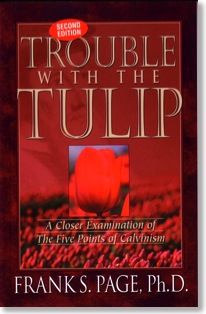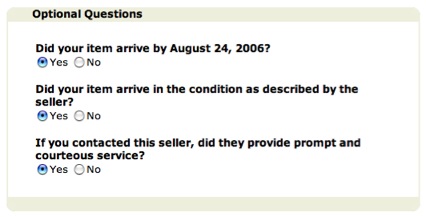Infernal Affairs

I first heard about The Departed around two years ago. It's a remake of a Hong Kong film called Infernal Affairs. Intrigued, I laid aside my usual trepidations and checked out the original, and was rather surprised that I "got" it, perhaps because rather than assuming the audience will understand its mindset, the movie takes the time to lay out the characters and motivations.
Eager to break up a notorious Hong Kong gang, two police officials work for years to place a cop mole in deep undercover. They are the only ones that know about their mole. The gang boss, wanting to beat the police, works for years to get a gang mole into the police department. He's the only one who knows about his mole. Eventually, each leader figures out they have a mole. Guess who each leader sends to sniff out the other mole?
It's a brilliant setup. When everything in your life is a lie, do you become a lie too? Can you stay true to yourself when you've been someone else for so long? Each mole has to deal with these issues, in addition to solving their problems, working for their bosses and covering their tracks. The cop mole's issues are played out with a little more weight--especially toward the end--but the gang mole's issues aren't sold short either. One of the most interesting things, in fact, is the conflict that he has about his lifestyle.
The film has some riveting set pieces. There's a drug raid standoff where you just can't figure out how the moles are informing their bosses, and the answers turn out to be ingenious. A confrontation in the police station where everyone suddenly figures out what is going on is played for maximum drama. The movie makes credible moves to raise the stakes, but also supplies emotional resonance to the characters--something you don't always see in Asian cinema.
Eventually though, the movie just can't go anywhere else. Something will have to give. The movie tries to cushion that fall, but it's still a rough landing. The film further suffers from the traditional Asian postscript, where things are told rather then shown. But for three-fourths of it's time, Infernal Affairs is remarkably good, and I give it a high recommendation. As to The Departed, Scorcese has always had an interest in this type of material, and he's one of the few people I believe could improve on the original. So there's a lot to be hopeful for.
Andrew Wells can be reached at arwell012002@yahoo.com.
Sign of the End Times: Singular They in the ESV
“Whoever keeps his commandments abides in him, and he in them.” (1John 3:24, ESV).
The change in person from the Greek is undeniable: καὶ ὁ τηρῶν τὰς ἐντολὰς αὐτοῦ ἐν αὐτῷ μένει καὶ αὐτὸς ἐν αὐτῷ. The last word in the Greek, αὐτῷ, is a 3rd person singular which is literally him. But in the ESV, αὐτῷ is translated as them, a 3rd person plural (which is technically a gender neutral/inclusive change to boot!). Consider the very literal rendering of the NASB: "The one who keeps His commandments abides in Him, and He in him." This may be the one instance where I approve of capitalizing pronouns for deity, because without them the verse would be very confusing if translated literally.
For the ESV to contain a singular use of they is highly ironic because some of the minds behind the ESV--particularly Grudem, Poythress, and Ryken--have been very critical of the TNIV's use of the singular they in verses such as Rev 3:20, and elsewhere (including 1 John 3:24). In fact, at www.genderneutralbibles.com, the changing of pronouns is labeled as an inaccurate translation practice:
This verse also illustrates another serious result of systematically changing singulars to plurals in thousands of cases: The TNIV will ultimately lead to a loss of confidence in tens of thousands of plural pronouns in the Bible. Preachers and Bible teachers cannot rightly use the TNIV to make a point based on the plurals “they/them/their/ those” or the second person pronouns “you/your/yours” because they can no longer have confidence that those represent accurately the meaning of the original. Maybe the original was plural ("their") but then again maybe "their" is a gender-neutral substitute for a singular ("his"). Maybe the original was 2nd person ("you") but then again maybe “you” is a gender-neutral substitute for a 3rd person singular pronoun ("he") or a singular noun ("a man"). How can ordinary English readers know? They can’t. So no weight can be put on those pronouns. “He” in the NIV has become “we” or “you” or “they” in the TNIV thousands of times.
Such criticism is surprising not only because of 1 John 3:24 in the ESV, but also the recent demonstration that the ESV translators changed pronoun person AND number in verses such as in Hosea 2:6 and Hosea 2:14 merely for the sake of clarity (the same thing for which they criticize the TNIV translators for doing).
A few weeks back, I suggested in another blog entry that a sign of acceptance for any change in grammar is its use in respectable literature. I used the TNIV as evidence that the singular they was becoming acceptable (again) from a grammatical standpoint. So, surely when such changes in grammar are also used by the very people who deplore the change (the ESV translators), it must be even greater proof that the change is not only becoming acceptable, but inevitable. Or maybe it's just a sign of the end times
What's the real story here? The use of them for αὐτῷ in the ESV rendering of 1 John 3:24 comes from the legacy of the RSV which reads, "All who keep his commandments abide in him, and he in them." As standard practice the RSV (rightly) did not capitalize pronouns referring to deity. So to keep from confusing the reader, the RSV translators changed the singular ὁ τηρῶν ("the one keeping" or "the one who keeps") to a plural ("all"). In changing the antecedent subject to a plural, it was necessary to change the corresponding pronoun to a plural as well ("them").
What's interesting is that the ESV translators, in revising the RSV, changed the subject in 1 John 3:24 back to a singular, but failed to do change back the corresponding pronoun to match its antecedent. Why? Well, my hunch is that in keeping with the reality that the use of singular they has never left informal modes of communication and therefore sounds perfectly natural to most hearers, I believe the ESV translators simply overlooked it. And this is case in point for what I've said previously: the ESV feels very much like a translation that was rushed. I will be very interested to see if the upcoming revision to the ESV doesn't fix this verse, and if I were a betting man (I'm not), I would guess that 1 John 3:24 is altered in the revised ESV.
Look, I've got quite a few friends who use the ESV as their primary Bible. Fine. I use the ESV in parallel with other translations, but not as a primary Bible. In spite of that, I would by and large recommend the ESV over many of the translations of a generation ago. I strongly believe in using modern translations of the Bible for a variety of reasons. But having said all that, I must state that I really don't like the Bible wars because they just seem to get too nasty and they detract us from our mission to reach a lost and dying world with the hope-filled message of the Good News of Jesus Christ.
Therefore, in light of the ESV's use of a singular they, AND in light of the ESV's alteration of person and number in the pronouns of Hosea 2 (and possibly elsewhere), I propose a truce in the Bible wars. If God speaks to you through the ESV, then praise the Lord for it. But if God speaks to me through the TNIV; and to my wife through the NLT; and to even another through the NRSV, NASB, NIV, CEV, GNB, or whatever--let's just all thank God that he not only communicated his will and his saving acts in history through a written record that we call the Bible, but also that we have a variety of translations in our own language in which to read it. And let us no longer think ill toward or look down upon those who read a different translation than we do ourselves. There are more pressing issues at hand...
The Video-Pastored Church: Is This Really a Good Idea?
So a couple of days ago, a different friend emails me a link to a local megachurch's* newsletter in which they've announced plans to start four or five new churches in the surrounding area. Now, I have no problem with starting new churches--especially in areas without a local church nearby. But that's not necessarily the method or motive of this particular church. They are concerned that some of their members drive more than 30 miles to attend church, so they are going to take the church experience to them. Moreover, although the worship will be live, the actual sermon will be delivered via video to try to create the same experience they would receive if they made the 30-mile trip to the main church's campus.
In my friend's email he stated, "I am curious as to what your thoughts might be on this... I struggle with the idea of having a video/TV pastor at multiple locations instead of an actual live pastor there." Well, personally, I have no struggle with this. I just believe it's a bad idea plain and simple, and I'll give you three reasons why.
1. The Video-Pastored Church Is Impersonal. The video-pastored congregation is "McChurch" at its worst. It's an attempt to package the ministry of one church and deliver a controlled experience to another location. There's no recognition for the needs of the local community. Rather, there's an assumption that if it works here, it will have to work there as well. How many of our churches have learned the hard way that the way the Spirit moves in one congregation cannot necessarily be captured in a bottle and made to work at another location? Yet the video-driven church is simply taking this attempt at reproduction to the next level, and the negative results of "packaged ministry" merely reaches new depths.
Plus, there's no room for a minister to change the "itinerary" of the service in response to the prompting of the Holy Spirit. I observed a truly amazing event at our church a couple of weeks ago. Our pastor stood up and said that during the worship experience, he felt convicted to abandon his prepared sermon so that he might address some critical spiritual needs our church was facing. As our pastor gave an impromptu message that morning, he preached from his heart--with no notes, but with great passion--for the same amount of time that he takes during a normal sermon. And it was moving; it was stirring. In the Sunday School class I taught afterwards, I told them that the message they just experienced may be one of the closest thing they might ever come--in our day and age--to an Old Testament prophet like Jeremiah standing up and giving a word from the Lord.
But could that ever happen in a video-pastored church? If we're going to receive our sermons via video, can't we just as easily stay home and have the experience in our bathrobes in front of high-def sets while munching on toast and slurping our oatmeal?
At the risk of sounding judgmental, I wonder about the motives of a video-pastored church. On one hand, such a move might simply be the desire to spread the ministry of one congregation to other regions, perhaps without thinking through all the implications. But on the other hand, I wonder how many of these video-pastored churches aren't merely an attempt for one church or one group of people or one minister to control the experience of their church plants? How much of this is, at the root, driven by ego? I mean is one particular pastor really significant/important/prophetic enough that we feel a need to replicate him in multiple places on Sunday morning? And if so, at what cost?
2. The Video-Pastored Church Is Non-Relational. It's this simple: you cannot pastor a church, nor can you be pastored through a video screen. There's no relationship between a pastor and his congregation in a setting like this. And it works on two levels.
I've been on both sides of the pulpit. Currently, I am not on a church staff, but I have been in the past and assume I will be in the future. For the person sitting in the pew (or the cushioned chair), there's not a personal connection to be made with the image on screen. There's something about having a gospel message proclaimed live in front of a congregation that cannot be captured on on video. Everything's always better in person. But it comes down to this: when my pastor is preaching on sin, it's a good thing for him to make eye contact with me now and then to remind me that I am a sinner like everyone else.
And the pastor himself needs to see the people to whom he's preaching. I can remember one of my first preaching experiences when I was in college, seeing a friend of mine weeping during my sermon. It shook me. What had I said? I asked her afterwards if I had offended her (it's one thing for the gospel to offend [1 Cor 1:23], but it's something else for me to be careless with my words). However, she said that my message had brought up some issues that she had pushed aside for a long time, and God showed her through my sermon that she needed to face these things.
I remember a similar experience a few years ago when I was interim pastor at a small country church. It was father's day, and I preached a typical "this is what a Christian father is supposed to be like" sermon. In my mind, I thought the sermon was a bit on the "lite" side. It was pretty much a feel-good message for a special occasion. But while I was greeting people afterwards as they exited the church, I noticed the organist sitting by herself on a pew. As I drew closer, I saw that she was quietly crying to herself. I asked her what was wrong and she replied that my message made her realize that there were things wrong in her home that she had simply been ignoring. I went to find one of her friends with whom I knew she was close, and the three of us talked for a while about some of these issues. But a pastor cannot do this if he cannot see his congregation. There may be a ministerial staff on site, but there's no room for the pastor's own immediate follow-up if he preached the message through video.
We are responsible for the messages we preach; we are responsible for the words that come out of our mouth. Hebrews 4:12 states that "the word of God is alive and active. Sharper than any double–edged sword, it penetrates even to dividing soul and spirit, joints and marrow; it judges the thoughts and attitudes of the heart" (TNIV). When God's Word is proclaimed, lives are changed. The person proclaiming God's Word should be on site to respond in follow-up to the needs of the church members.
Certainly there's room and need for recorded messages, but these should never take the permanent place of personal ministry of a pastor to his congregation.
3. The Video-Pastored Church Keeps Someone from Fulfilling His Calling to Preach God's Word. Planting new churches is generally a good thing, but those churches also need strong leadership. I certainly realize that any satellite video-driven church will have to have some level of ministerial staff--some kind of under-shepherd(s)--to function. However, with pastoral ministry comes the calling to preach God's Word (2 Tim 4:1-2). For every church that delivers the Sunday sermon via video feed or DVD, there is a pastor who is not fulfilling his God-given calling to proclaim the gospel (Rom 10:14).
The church has just as much responsibility for equipping new preachers as our seminaries do--perhaps more so. A new church plant under the auspices of a larger, parent church is a perfect context for this to take place.
Look, outside of extremely rural areas and in mission regions that are largely unchurched, I don't believe people should drive thirty minutes to church either. I've written about this before (see links below). I firmly believe that part of the reason that so many people feel disconnected from their churches and their local communities is that they've separated the two from each other. There's a great communal value from living in the same community--the same neighborhood if possible--as your local church. In fact, I suggest that your church should be within five miles of where you live. Then you can go to church with your neighbors and have random points of contact with your fellow church members throughout the week. This helps create a feeling of community on multiple levels, not driving thirty miles in the hopes of creating community with a bunch of people you see only once a week.
As I've said here, planting churches is a good thing. But if we want to build community, if we want to impact our cities and neighborhoods for Christ, we must worship locally and we must minister and be ministered to locally. The video-pastored church--the video-driven church, if you will--is not the answer.
I had a conversation this past summer with an older mentor to me in ministry whom I've known for quite a long time. The context of our discussion was not this subject, but he said something that certainly applies. He told me, "What we need in our churches today are pastors who are good communicators--without the ego--and have good people skills. It's that simple." I agree. And further, I agree that these pastors need to preach in person, not via an impersonal video screen.
*I am purposefully not naming any individuals or churches in this post. Although I disagree with video-pastored churches, I don't deny that the churches and the ministers themselves are performing valuable ministries and changing peoples' lives in their contexts. I have no desire to detract from the good that these ministries are doing. I just believe that in-person teaching and proclamation of the gospel is a much better idea.
Related Viewing:
• Rediscovering the Neighborhood Church, Parts One, Two, Three and Four
• Hank Hill and the Local Megachurch
What He Said
“When you get past the schoolyard mentality and the stupid, ignorant prejudices,” you have heard people say, “what we have are two different operating systems that each work very, very well. Really, it’s not a matter of good or bad. It’s just a matter of personal preference.”
Those are very wise words. I have said much the same thing. But what I’ve endured over the past few months is the equivalent of a weeklong road trip with someone whose company you’ve always enjoyed, but never really known as a true friend. Windows has propped its bare smelly feet up on my dashboard and told me the story about how he was so hung over during his aunt’s funeral that he threw up into the coffin a little. His greasy hair has left smears on the inside of the window that no solvent can shift. He just sort of assumed that he could use my iPod, and during the one time he took a turn at the wheel, the battery was completely flat and I had to listen the story about the funeral a second time.
I made the switch from Windows to the Mac in 1998, and I've never looked back. In fact, I only wish I had been smart enough to do it sooner. That year--1998--I was serving as an associate pastor at a church where I was put in charge of creating worship slides in PowerPoint as we experimented with this whole new idea of using our projector instead of printed music for worship. I was attempting to use PowerPoint '97 in a fresh install of Windows '98 on a brand new Compaq computer that I had just purchased with my own money.
And it kept crashing.
And crashing.
And crashing.
And crashing.
I wasn't using any kind of fancy graphics--nothing extravagant at all--just the words for the songs. I was saving my file constantly because every two or three slides and the whole computer would freeze, filling the room with the blue glow of the Windows "screen of death." If you've ever used Windows for any period of time, you know this frustration. Yes, you do; don't deny it.
And I had set this computer up myself. Like Andy says in his article, I, too, was no slouch around Windows myself. Heck, I'd been using computers since I was 14 in 1982, starting with a TRS-80. I learned the ins and outs of MS-DOS, and I began using Windows at the 3.0 release (not the 3.1 update like everyone else). I had migrated up through Windows '95 and then finally Windows '98. And as that Compaq kept crashing, I thought to myself that there had to be a better way.
Like lots of hardcore PC users, I was very anti-Mac; and I looked upon the Mac crowd as a bunch of idiots who didn't really know how to use a computer. But as I looked at my alternatives, I realized that I should give this Mac thing a shot. So, in 1998, I ordered my first Mac--a 300 mhz "Wallstreet II" PowerBook with a 14" screen.
As I began to use the Mac, I was delighted to discover that although it could crash, too, it didn't do it near as much. The Mac was much more stable than any Windows machine I had ever used. And ironically, Microsoft PowerPoint for the Mac WAS MORE STABLE than Microsoft PowerPoint for Microsoft Windows. Go figure.
If you're a diehard Windows user, you may want to write me off as a Machead blowing smoke--just like I used to do. But I tell you that when it comes down to the bottom line of user experience--all things considered--the Mac simply works. Yes, OS X can crash, but I can't remember the last time it did. Can you, if you're a Windows user, remember the last time your XP machine locked up? Probably. Yes, sometimes there are problems with Macs such as the recent Macbook Random Shutdown fiasco, but often computer manufacturers often have initial problems with a new product. My experience with Apple over the past eight years was strong enough that I bought a new MacBook myself recently.
Unfortunately, I've had to keep a foot in the Windows world all these years since I switched. From 1999 to 2000 I worked part time as a computer network specialist for a consulting company in which 99% of our work was related to Windows machines. And when I taught high school, I also spent three of those years as administrator of the school network (three Windows servers and 140+ Windows clients). Plus, even since switching to the Mac, I've kept a copy of Windows loaded: first in VirtualPC, and now in Parallels Desktop. So I still use Windows now and then; I've been able to keep up.
But I still don't like Windows. All the time I spent working for the consulting company, and all the hours put in on the school network and fixing this or that problem with various Windows PCs always made me appreciate my Mac experience all the more. Even now when I have to use Windows for whatever reason, I just come away feeling a bit...well...a bit dirty.
And don't read me as as one of these anti-Microsoft Mac folks. I'm not anti-Microsoft. I have Microsoft software on my MacBook. Some of Microsoft's ideas are innovative and some of its technologies are robust. I've read two of Bill G's books, and I think he would be an interesting person to sit down and have a conversation with. But I think the whole Windows thing is a scam, and in the end I believe it was a bad idea to let MS Windows become the dominant OS platform. The Mac is not perfect either, and I don't agree with everything Apple/Steve Jobs does, but I'll take OS X over Windows any day because it just works. That's the bottom line of it all. I can sit down, use my computer to do what it's supposed to do, without it crashing, without worrying about viruses or spyware, without my system getting slower and slower as the weeks go by.
So when I read Ihnatko's article, I just had to say..."Yeah, WHAT HE SAID!"
Hebrews 4:8 in the KJV
The Lifeway Explore the Bible curriculum uses two translations as its base, the HCSB and the KJV and normally reproduces the verses side by side. Any quick look at Heb 4:8 in these two translations immediately demonstrates a problem:
| HEBREWS 4:8 | |
|---|---|
HCSB |
KJV |
| For if Joshua had given them rest, He would not have spoken later about another day. | For if Jesus had given them rest, then would he not afterward have spoken of another day. |
Obviously, there's going to be a big difference in the meaning of the passage based on whether the writer is speaking of Joshua or Jesus. What?! You don't remember the Old Testament story about Jesus leading the Israelites into the Promised Land?
For sake of comparison, here are a few other translations of the verse:
"For if Joshua had given them rest, God would not have spoken later about another day." (NIV/TNIV)
"Now if Joshua had succeeded in giving them this rest, God would not have spoken about another day of rest still to come." (NLT)
"For if Joshua had given them rest, He would not have spoken of another day after that." (NASB)
"For if Joshua had given them rest, God would not speak later about another day." (NRSV)
"For if Joshua had given them rest, God* would not have spoken of another day later on." (ESV)
Obviously, the majority consensus is for Joshua, not Jesus. And it certainly makes sense because the context of the writer's argument is an analogy that he's drawing from the Israelite's entrance into the Promised Land. So why the difference in the KJV?
Well, part of the problem with the King James Version is that in the New Testament the translators chose to transliterate the Greek versions of the names of Old Testament characters rather than matching up the spellings with what was used in the KJV Old Testament. So in Matt 24:37, Noah is represented as "Noe," Elijah becomes "Elias" in Matt 11:14, Isaiah becomes "Esaias" in Matt 3:3 and so on. Some of these the reader will catch, but such inconsistency between the testaments can and certainly has created confusion and even misinterpretation in the past. [Consider for example, the blunder made by Mormon "prophet" Joseph Smith in Doctrine & Covenants 76:100, where he writes, "These are they who say they are some of one and some of another—some of Christ and some of John, and some of Moses, and some of Elias, and some of Esaias, and some of Isaiah, and some of Enoch...." It hardly seems fitting for a so-called "prophet" to make such an error that would become part of their sacred and "inspired" writings, wouldn't you think?]
That brings us to Jesus and Joshua. The two have the same name. Jesus is the Greek form (Ἰησοῦς/Iesous) and Joshua is the Hebrew form (יהושע/Yehoshua) of the same name. So, technically, the KJV translators were being consistent in their method of keeping the Greek form of the names of the Old Testament characters when it came to Heb 4:8. But surely anyone can see the confusion that such a practice causes. The same kind of misreading is caused in Acts 7:45 which again reads "Jesus," when the context is obviously referring to Joshua.
Every major modern translation today has gone to keeping the names consistent between the testaments. And the TNIV has gone a step further in that the translators have chosen to update the spellings of certain names to bring them closer to their Hebrew originals. A chart of such spelling changes is in the back of every TNIV Bible.
Hebrews 4:8 is a perfect example of why I never recommend the KJV as a primary translation for serious study. Even the student who can plow through the Elizabethan English fairly well has a strong possibility of misinterpreting a verse like Heb 4:8 or Acts 7:45. Further, I've noted since beginning our study in Hebrews, as I've been translating some of it, that the Greek is more difficult in this book than most other places in the New Testament. And that is reflected in the KJV rendering of many of the passages in Hebrews which come across as nearly unintelligible (see, for instance Heb 3:16-18 in the KJV).
I suppose it would be controversial for some to hear that the KJV can lead to misunderstandings and misinterpretations of the text in a verse like Heb 4:13 or Acts 7:45. Maybe that's why the editors at Lifeway decided to simply leave that verse out of the study. But v. 8 is an essential part of the writer's argument. Plus, for the one or two KJV users in my class, bringing up the issue was a way to gently encourage them to use a newer translation. Therefore, we covered v. 8, and everyone understood that the reference was to Joshua.
Irony of Ironies: Britannica Won't Function on My New MacBook
In the end, I only had to reinstall two programs: Microsoft Office 2004 (I was getting an error message about missing files even though the software would function), and Symantec Antivirus (I know, I know--no viruses on a Mac; I'm just paranoid after working in the past as a system administrator).

Criminy. Don't tell David Ker about any of this.
Well, I've already removed the Britannica software from my Applications folder. There's no need for it to take up space if it can't be used. I'll dig through my CD's later. If I remember correctly, the CD I have can be loaded in either Windows or Mac OS X, and I did install Parallels Desktop yesterday to run the occasional Windows program (Parallels is much faster than VirtualPC ever was, I might add). But I don't know. Having to run Britannica in Windows somehow takes all the fun out of everything.
At least I still have my hardbound set which is platform independent.
Related Reading (in case you're just tuning in and don't know why this is ironic):
Is the Wikipedia the Hitchhiker's Guide to the Galaxy?
The Sum of Human Knowledge
Why Britannica Trumps the Wikipedia
The Wikipedia Is Not Enough
Martin Luther Was Excommunicated on this day and Why I Love the Encyclopedia Britannica
BibleMemory.us Now Available in TNIV
“I have hidden your word in my heart
that I might not sin against you.”
(Psalm 119:11, TNIV)
Robert Parmelee has created a very innovative approach to Scripture memory using the internet as a delivery system. The plan works like this: for $5 a year (a very reasonable fee considering all the work Parmelee has put into this), you get an email at the beginning of the week with a link to your memory verse for the week. That link takes you to a page just for you on the BibleMemory.us website that includes your verse and blanks for you to retype it (for practice).
The next day, a new email link will take you to a page with one word missing. On each successive day over the week, more blanks will appear for you to fill in from memory.
By the end of the week, you should be able to type in the entire verse without help.
You also get a personalized home page at the BibleMemory.us site that allows you to review all your old verses.
Bible verse are grouped according to various themes. Parmelee is also very open to suggestions for new themes as well, and in the future there are plans which would enable you to enter your own verses for memorization.
I first discovered BibleMemory.us through the ESV Bible Blog. I wrote to Robert Parmelee and asked him if he would consider making his verses available in the Today's New International Version. He was more than willing, but needed a text file of the translation. THAT was something I could help with, so a couple of weeks later, the TNIV has been plugged into his database and is now available to everyone.
This is perfect timing for me. Years back, I went through the Navigators' Topical Memory System and learned those verses in the NASB. As my use of translations has begun to change over the years, I've wondered whether I should try to re-memorize those TMS verses in something newer like the TNIV. Of course, switching the translation used for memorization can be a tricky thing; plus the TMS is not currently available in the TNIV (although I've suggested it to them). So, I think for the time being, I'll hold off on re-memorizing the TMS and use Parmelee's system instead. That should keep me busy for a while.
BibleMemory.us has verses for memorization in the ESV, KJV, NASB95, ASV, NIV, and TNIV. Parmelee's also open to other translations if you want to use something else, and merely needs a text file of your preferred translation. Currently, I believe he is looking for a copy of the NKJV if anyone has access to it in electronic form.
Regardless of which translation you would choose, give BibleMemory.us a try. Scripture memory--following whatever method--is an excellent spiritual discipline to practice. You've only matured past it when you can recite the whole Canon by heart.
“Keep this Book of the Law always on your lips; meditate on it day and night,
so that you may be careful to do everything written in it.
Then you will be prosperous and successful.”
(Josh 1:8 TNIV)
He REALLY Wants a Mac
Well, this post is regarding something similar. My former student Josh Clark is pulling a stunt just goofy enough that it might work out. I'm sure you've seen those ads for a free iPod or a free Mac. But if you've actually tried to get one, you have to sign up for a kabillion credit cards and clubs that I'm sure very few are persistent enough to actually get any free equipment.
So, Josh here--he's smarter than that. Why fool with the gimmicks when you can simply create your own? Josh is simply asking you give him a dollar to go to his Mac. Yep, one buck. And in return? Well you get your name on a list of contributors and that's about it. That and the assurance that you're helping out a gooberhead college student.
He's even got his own website, "IReallyWantaMac.com." On the site, Josh explains it this way:
The short story is: I really, really want a Mac.
The problem is this: I’m a poor college student. Ramen noodles, the whole bit. No way I can afford a new computer anytime soon.
The solution: I want as many people as possible to stop by this site and send me a dollar. If I get 1,868 people to do that, I’ll buy a Mac. I know, I’m crazy.
I believe there are a lot of generous people in the world. But also, it’s just a dollar. That’s the tax on a DVD movie. Your wallet won’t feel any lighter without it, but it would make a big difference for me.
How this all works: If you donate a dollar (or more) to the I Really Want a Mac fund, your name, city & state, and a link to your website will be posted on The List (unless you really don’t want it there).
The Mac he lists is a black MacBook, reasonably configured, so he's not being greedy. Basically, Josh needs about $1,800 to cover the MacBook, tax, and extended warranty (something I always recommend with portables).
Go to Josh's website and help him out. I can vouch for Josh that he's a good fellow.
And it's only a buck: www.IReallyWantaMac.com
Zondervan TNIV Study Bible: All Editions Now Available

Essentially, the TNIV Study Bible now comes in two sizes: a regular size (6.7 in. wide x 9.5 in. high) and a smaller personal size (6 in. wide x 8.8 in. high). Now if you really compare those dimensions, the personal size editions are not that much smaller than the regular editions. However, for many, they will be psychologically smaller when held in the hand. I personally don't mind carrying a large Bible, but for the believer who wants to carry a full study Bible, but in a more compact size, I would definitely recommend the personal size edition. And since the personal size edition is not really that much smaller than the regular size, I didn't see type size taking a real hit. I laid both sizes down on a counter side-by-side and felt either edition would be readable to the average user with standard eyesight.
As I looked at the various leather editions, two stood out. First, in the regular size I liked the one in black European leather (ISBN 0310934915). I'm not sure exactly what "European leather" is compared to other grades, but the leather on this Bible felt sturdy and was very attractive. Further, it was similar to some of the two-toned Bibles that have been popular recently, but instead of two different colors, it had two styles of leather--one part was smooth and one part had a rough, grainy look and feel. If I were getting a TNIV Study Bible in leather, this is the one I'd choose.
Then in the personal size editions, I really liked the "Italian Duo-Tone, Burgundy Camel" (ISBN 0310934680, pictured above). Normally, I am not a fan of two-toned Bibles, but I have to admit that I was rather attracted to the beige (or I guess, camel) strip of leather cutting through the midsection of this Bible. The strip of leather is actually sewn on top of the Bible's leather cover and holding it in my hand, it seemed to give the Bible extra support and really made it feel sturdy.
All of these editions looked quite nice, and I have to admit that although I've said I'm waiting for a wide-margin TNIV to fully transition over to this translation as my primary Bible, I believe that if I had a copy of the black European leather TNIV Study Bible, it might just serve as a reasonable substitute in the interim.
Here is a listing of the full line of the Zondervan TNIV Study Bible with ISBN's. The links will take you to Amazon.com.
Regular Size:
- Hardcover
- European Leather, Black/Black
- European Leather, Black/Black, Thumb-Indexed
- European Leather, Sienna/Cashew
Personal Size:
- Hardcover
- Softcover
- Italian Duo-Tone, Burgundy/Camel
- Italian Duo-Tone, Burgundy/Camel, Thumb-Indexed
- Italian Duo-Tone, Chocolate/Haven Blue
Related: My Review of the Zondervan TNIV Study Bible
Retro Review: The Wicker Man (1973--the original version)
A Guest Retrospective by Andrew Wells

Here's the scenario of the original movie: A call goes out to a police district headquarters in rural England. A little girl has gone missing from a small village on a remote isle. Sergeant Howie (Edward Woodward) travels by seaplane to investigate the disappearance. Although he comes off as a bit rigid in the portrayal, the movie goes to great length for the viewer to understand that Howie is a devout, practicing Christian (most likely Catholic) who draws strength from his faith. He is scheduled to be married in a week, but feels compelled by duty to go out to investigate the girl's disappearance.
The island's main employer and ruler is Lord Summerisle (Christopher Lee, who has claimed this as his favorite role). In order to increase production and keep the workers happy, the rulers decided to long ago give up practicing Christianity and instead pursue paganism.
This is where The Wicker Man really gets macabre, because this is not your average Hollywood paganism (like witchcraft). The movie takes considerable time to explore a society that has evolved without Christian teaching. What would people act like? What would their morals be? How would their values appear in their surroundings? The movie comes up with some distrurbing ideas. The image I find hardest to shake is a group of children celebrating recess by dancing around a maypole and chanting hymns to an earth goddess like they were nursery rhymes.
Howie not only now has to find the missing girl, but he must do so in surroundings that are completely different to his beliefs. This leads to all sorts of temptations for Howie, much of it sexual. And this is where I want to be absolutely clear to the reader: Even though everything is given a proper context, and is by no means gratuitous, there is a fair amount of nudity in this movie, especially when Howie first arrives in the village. Sensitive viewers may want to skip the scene of Howie's night at the inn altogether. After that, the movie settles down somewhat, though the discussion is still frank.
Yet the movie remains, quite amazingly, fair-balanced in discussing Christianity and paganism. Though he has temptations, Howie proves to be quite strong and formidable in his faith. The scenes where he calls on God for strength are genuine moments. His alarm at the situation he is in does not keep him from doing his work or standing up for God. The pagan village, though shown to be peaceful and kind, is not glamorized as uninhibited and free-spirited. Quite the opposite, actually. Strenghts and weaknesses of both systems are pointed out and examined.
Why would anyone even TRY a remake? It is impossible to discuss this movie's ideas in the current culture. Religious belief of any kind is a powderkeg in the media right now. And to make a movie that rationally examines these issues, instead of pushing emotional buttons and taking shortcuts? Is that even possible? Would people be willing to take the time to listen? Would dialogue open up? Sadly, I doubt it.
So it makes sense that the new Wicker Man would most likely be a straight-on horror remake. But the new movie won't be able to get that right either. The original ending is one of the all-time movie shockers, but what makes it shocking is not what happens, but why it happens--and that's all tied in to the issues the movie raises.
Because of the aforementioned nudity and that shocking finale, I'm not going to endorse this movie. But if you are looking for a movie that will make you think, The Wicker Man is a good one. If nothing else, you'll wish you could find out what happens in the village next spring.
Andrew Wells may be contacted at arwell012002@yahoo.com.
For further investigation:
- The Wicker Man (1973): IMDB Page
- The Wicker Man (2006): IMDB Page
- From Wikipedia: The Wicker Man 1973 movie entry and "Wicker Man" general entry
The New Look of Leopard Previewed in iTunes 7?
The OS X Aqua interface has had a translucent candy-like appearance since version 1.0. Way back when Steve Jobs first showed it off, he said the interface looked so good, you would want to lick it. Well, I've never been into an OS that much, but Aqua did look good back in the day. Basically, it was a reproduction of the translucency in the original iMacs that had helped Apple regain a place of significance in the computer market. But gradually, the candy-colored look of Aqua has started to get old after five years. It has been lessened over time--the pinstripes, for instance, have been toned down or removed altogether from many applications.
So, after installing iTunes 7 and exploring all the new features, something else jumped out at me. Other than the standard red, yellow and green buttons in the top left corner, there's no translucency in the iTunes 7 interface at all. Compare versions beginning with the previous version 6:

The most obvious example of translucency in the above image are the scrollbars, but the sign-in, play, forward, reverse, and home buttons are all translucent.
Now notice iTunes 7:

As I mentioned earlier, the only translucence in the interface is found in the buttons in the top left corner. None of the other buttons have a glassy translucence at all. Now if that were the only change, I might not have thought anything about it. But notice the scrollbars. The trademark translucent blue is gone, replaced by a shaded slate blue.
Now this is very interesting. Last month at the Worldwide Developers Conference, Steve Jobs remained oddly tightlipped about the upcoming version of OS X, codenamed "Leopard." He did show off ten new features, but said that he was keeping much of the new OS to himself for the time being so that Microsoft couldn't copy everything into the upcoming Windows Vista. At the time, this sounded simply like another jab at Microsoft from Jobs, but what if there really is something to it?
Consider this. It's no secret that Microsoft has always seemingly taken its cues from Apple in regard to its Windows interface. And in the new Windows Vista, translucency is everywhere. But it's not called "Aqua," of course--that would be too obvious. In Vista, the interface is called "Aero" (I'm not kidding). Here is a screen capture from Microsoft's own website:

You can't blame Steve for wanting to keep some of the features in the next version of OS X secret until Vista ships. And wouldn't it be funny once Vista is released in all of its Aero translucency, if Steve simply declares the see-through look passé and removes it entirely in the final release of Leopard?
For Microsoft, that'd be like showing up to the dance in last year's dress.
Wouldn't that be a kicker?
Apparently, I'm not the only one noticing this. See "Aqua Is Dead, Long Live Aqua" at the Unofficial Apple Weblog.
Family Correspondence from Five Years Ago Today
Date: Tuesday, September 11, 2001 11:15 AM
From: Barbara & Sonny Orren
To: "'R. Mansfield'"
Rick,
The white house has been evacuated because of an explosion at the World Trade Center in N.Y. All airports have been shut down. The third explosion collapsed the World Trade Center in N.Y. People jumped out from the top of the tower.
Mom
Subject: Do you know where your children are?
Date: Tuesday, September 11, 2001 12:21 PM
From: Barbara & Sonny Orren
To: "'R. Mansfield'"
Rick,
Do you know where your dad is at this time?
Mom
Subject: Important Things!
Date: Tuesday, September 11, 2001 2:42 PM
From: Barbara & Sonny Orren
To: "'R. Mansfield'"
Early this morning, I thought that I had important things to do today!
I’m going to run my errands now, but somehow they all seem so trivial.
Love you,
Mom
Subject:
Date: Tuesday, September 11, 2001 3:14 PM
From: Mansfield, Kathy
To: "Mansfield, Rick - work"
are you keeping up with the news?
Subject: Re:
Date: Tuesday, September 11, 2001 3:48 PM
From: Richard Mansfield
To: "Mansfield, Kathy"
Yep. Your rehearsal is cancelled tonight. They are having an emergency prayer meeting tonight instead. I think we ought to go.
Subject: RE:
Date: Tuesday, September 11, 2001 4:05 PM
From: Mansfield, Kathy
To: Richard Mansfield
I'll go home to let Bessie out. I can just meet you at the church at 6:00
then.
Subject: Re:
Date: Tuesday, September 11, 2001 4:07 PM
From: Richard Mansfield
To: "Mansfield, Kathy"
OK.
Subject: RE:
Date: Tuesday, September 11, 2001 4:11 PM
From: Mansfield, Kathy
To: Richard Mansfield
Clark works at Barksdale Air Force base. The President stopped by their on
his way into hiding. I emailed Mom to see if Clark was evacuated from the
base since he's a civilian or if their was a lock down situation or
whatever. Haven't heard back from her, yet.
Posted: "Theology for an Age of Terror"
As I mentioned in my previous post, this short article is one of the best biblical reflections I've seen on the September 11 attacks and related issues.
Where Were You on September 11, 2001?
At the exact moment I received word that something had happened, I was sitting at my iMac helping Hannah Davis, a senior, edit footage that we had filmed at the retreat. David Balty, our English department chair, sent word via a student that something had happened in New York and there was smoke pouring from one of the World Trade Center buildings. There was a television in my room used for videos and PowerPoint, but it was not connected to cable service, so all we could see were static-filled images. From what we could see, though, there was definitely something happening in NYC. I know that a teacher is not supposed to leave students alone, but I slipped upstairs to the office of our principal, Brian Rose, because he had a television in his office. There was already a group huddled into his office transfixed by the images on the television. After viewing the images on television, I went back down to my classroom and informed my students with what I knew at that point. We said a prayer, but not knowing how serious the situation was yet, I encouraged them to continue planning the chapel service. My students remember that they first heard the name "Bin Laden" from my lips that morning (of course at the time, they asked "Ben who?"). Coincidentally, I had just read or seen something about Bin Laden in the days before this event. When my students asked me who I thought would do something like this, he was the first name that came to mind. Over the next couple of hours I stole up to Brian's office at various points. It was on his small television, that I saw the horrible images of the second tower struck, the attack on the Pentagon, and both towers fall. I remember people in Brian's office and on television speculating how many people worked in those towers. The highest figure I heard at the time was 50,000.
That was a very frightening day for us all. I remember the uncertainty as to how widespread the attacks were. We had seen the twin towers fall, a plan crash into the pentagon, and a false rumor that a car bomb had gone off in front of the State Department. From the point that the second tower in New York was hit, we knew that this was no accident--that our nation was under attack. When word reached us that a plane had crashed in Pennsylvania, there was fear that the attacks were spreading west. How widespread was this attack? Would it hit us, too? There were reports on television suggesting people stay away from public places such as malls and especially government buildings.
I can only remember a couple of parents coming to pick their children up from school that day. Such parental instinct is certainly understandable, but I was glad that this was not the pattern. As word of the attacks spread through the student population, many in my classes wanted to suspend our work and move to one of the classrooms with actual television reception. A few students maybe even thought I was slightly unconcerned about the situation because I insisted that outside of a prayer for the situation that we carry on class as usual. I still believe that was the right thing to do.
The best Christian reflection I've come across on September 11, I only read a few days ago. In the current issue of Christianity Today, Timothy George writes a profound piece titled "Theology for an Age of Terror" (not yet available online) in which he looks to Augustine, St Francis, and C. S. Lewis for direction on how to look at the world in the midst of seeming chaos. I especially identified with the words of C. S. Lewis quoted in George's article. The quotation came from an address Lewis gave at the University Church of St. Mary the Virgin at Oxford on October 22, 1939. He was speaking to students a mere two months after the Nazis had invaded Poland. Lewis said:
It may seem odd for us to cary on classes, to go about our academic routine in the midst of a great war. What is the use of beginning when there is so little chance of finishing? How can we study Latin, geography, algebra in a time like this? Aren't we just fiddling while Rome burns?
This impending war has taught us some important things. Life is short. The world is fragile. All of us are vulnerable, but we are here because this is our calling. Our lives are rooted not only in time, but also in eternity, and the life of learning humbly offered to God, is its own reward. It is one of the appointed approaches to the divine reality and the divine beauty, which we shall hereafter enjoy in heaven and which we are called to display even now amidst the brokenness all around us.
Lewis was right. History has indeed shown us that life is short and the world can be fragile. But in the midst of seeming chaos, we must never forget that God is in control regardless. We have a calling, and in response to that calling, we press on.
Philosophia Christi 8.1

Here are the contents:
ARTICLES:
"Historical Arguments and Dwindling Probabilities: A Response to Timothy McGrew" -- Alvin Plantinga
"On the Historical Argument: A Rejoinder to Plantinga" -- Timothy McGrew and Lydia McGrew
"The Counterattack of the Resurrection Skeptics" -- Stephen T. Davis
"Epistemic Relativism and the Possibility of Religious Epistemology" -- Timothy Mosteller
"Cartesian Anxiety, Perspectivalism, and Truth: A Response to J. P. Moreland" -- Myron B. Penner
PHILOSOPHICAL NOTES:
"Trinity Monotheism Once More: A Response to Daniel Howard-Snyder" -- William Lane Craig
"Natural Uniformity and Historiography" -- John Beaudoin
"What Is Naturalism?" -- Philip E. Devine
"Does Plantinga Have His Own Defeater?" -- Bruce R. Reichenbach and Adam W. Nugent
"Omniscience As a Dispositional State" -- Andrew Cullison
"Ducking Friendly Fire: Davison on the Grounding Objection" -- William Lane Craig
BOOK REVIEWS:
Christopher Peacocke, The Realm of Reason -- Reviewed by Joshua C. Thurow
David Cheetham, John Hick: A Critical Introduction and Reflection -- Reviewed by Paul Rhodes Eddy
David Bassinger, Religious Diversity: A Philosophical Assessment -- Reviewed by Paul Rhodes Eddy
Michael Martin and Ricki Nonnier, eds., The Impossibility of God -- Reviewed by Charles Taliaferro
Erik J. Wielenberg, Value and Virtue in a Godless Universe -- Reviewed by Michael W. Austin
John E. Hare, God's Call: Moral Realism, God's Commands, and Human Anatomy -- Reviewed by David A. Horner
Harry Frankfurt, The Reasons of Love -- Reviewed by John Milliken
Mikael Stenmark, How to Relate Science and Religion: A Multidimensional Model -- Reviewed by James C. McGlothlin
Mary Midgley, Science and Poetry -- Reviewed by Christopher Blakey
Jorge J. E. Gracia and Timothy B. Noone, eds., A Companion to Philosophy in the Middle Ages -- Reviewed by Christina Van Dyke
Lifeway's Hidden Gem: Biblical Illustrator

In the title I call Biblical Illustrator a hidden gem because I don't know how many Baptist Sunday School teachers are familiar with it. In fact, I think I'm the only person at my church who uses it. In the church I grew up in, Biblical Illustrator was standard fare among our teachers, but I haven't seen it used as widely in the churches of which I've been a part since coming to Kentucky.
Below is a listing of the contents from the current Fall issue of Biblical Illustrator. One thing you'll notice is that a number of different portions of the Bible are covered. Lifeway produces a variety of curriculums, and Biblical Illustrator provides background articles for three of them. If you've visited this blog in the last week or so, you'll know that the class I teach just started a study on the book of Hebrews. You'll note below that there are quite a few articles to aid my preparation, but I certainly don't mind having the other articles as well. I usually find myself reading the whole issue in addition to the articles from back issues available on the optional CDROM that I'll describe further down below.
|
Article Title |
Author |
Related Text |
|
Daily Life in
Biblical Times by Oded
Borowski |
McLemore, James
D. |
Book Review |
|
The Veil |
Bergen, Martha S. |
Hebrews 6; 9-10 |
|
From Slaves to
Soldiers |
Harris, John L. |
Joshua |
|
What's for
Supper? The First-Century Diet |
Gritz, Sharon |
Hebrews 5:11-6:12 |
|
"Better" in Hebrews |
Booth, Steve |
Hebrews |
|
First-Century
Gymnasiums and Exercise |
Simmons, Billy E. |
Timothy 4:6-16 |
|
Agricultural
Metaphors in the New Testament |
McCoy, Glenn |
Hebrews 5:11-6:12
|
|
Why Are 1 and 2
Timothy So Different? |
Weathers, Robert A. |
1 and 2 Timothy |
|
Who Were the "Officers"? |
Jenkins, David L. |
Joshua 1:1-15;
24:1-31 |
|
The Aim and
Message of Hebrews |
Smith, Argile A. |
Hebrews |
|
The Jordan River |
Register, Dean |
Hebrews 5:11-6:12 |
|
Life for the
Babylonian Exiles |
Hall, Kevin |
Isaiah 40-55 |
|
Moses in the Book
of Hebrews |
Jackson, Paul N. |
Hebrews |
|
Genealogies,
Myths, and Old Wives' Tales |
Chambers, Andy |
1 Timothy 1; 4; 2
Timothy 4 |
|
Seated at the
Right Hand |
Stewart, Don H. |
Hebrews 8:1-9:28 |
|
Ai |
Caldwell, Daniel
P. |
Joshua 7:1-25 |
|
In the Days of
Ahaz |
Newell, James |
Isaiah 7:1-9:7 |
|
Seizing Property |
Young, R. Garland |
Hebrews 10:19-39 |
|
Ephesus Through
Timothy's Eyes |
Gregg, D. Larry,
Sr. |
1 and 2 Timothy |
|
Ancient Weights
and Anchors |
Roark, C. Mack |
Hebrews
6:13-7:28; 12:1-29 |
|
ArtiFACTS:
Biblical Archaeology: Why Does It Really Matter Anyway? |
Drinkard, Joel
F., Jr. |
General Article |

But wait...there's even more. Not too long ago, someone at Lifeway had the great idea to make each issue available on CDROM. Now, if you get Biblical Illustrator Plus, you not only get every article in the print magazine in PDF form but also between sixty and seventy articles from back issues! Each time I get a new copy of Biblical Illustrator Plus, it's like a mini-Christmas for me. Although the CDROM comes with an interface that will run on either a Macintosh or Windows system, that's generally not the way I use it. I move all the articles to my hard drive sorted into folders named after books of the Bible. In merely a year's time, that gives me access to hundreds of articles that I can use not only in Sunday School but other teaching venues as well.
If you teach Sunday School in a Baptist church, this is a must-have resource. However, even if you aren't Baptist, you might find great value in Biblical Illustrator. Subscriptions per year cost $20.55 for the print copy and $34.55 for the CDROM. If you teach in your church, you may be able to ask your minister of education to order this resource for you.
For further information:
• Biblical Illustrator (Print)
• Biblical Illustrator Plus (CDROM)
• Complete Article Index (1974-2006)
More on "Singular They": Step 2.5
1. The change begins in oral speech and informal writing.
2. The change shows up in respectable literature.
3. The change is demonstrated in most grammar books as new editions are published.
The steps above are simply from my observation; but I do have a degree in English, so I've had enough experience in the area to see such things take place.
Not all forms of currently unacceptable English will eventually become acceptable. And just because something's used widely at a popular level still doesn't mean it will become acceptable. "Ain't" has not become acceptable in formal grammar and probably never will. The same goes for most slang. Currently, there's greater laxity toward things like split infinitives and prepositions at the end of sentences, but official acceptance is still slow. And in my opinion, there's nothing wrong with slow acceptance of changes. Ultimately these are rules that we agree upon as a civilized society, and they should not be made too quickly.
The English language, contrary to the wishes of traditionalists, is never static. When I was in college, I took a class in 1988 called "Advanced Grammar," which was actually a fairly enjoyable class despite the name. In that class, our main grammar was Descriptive English Grammar, written in 1931 by Homer C. House and Susan Emolyn Harmon. We used the second edition which was a revision by Harmon published in 1950. Our teacher chose this book because she said she liked it better than any of the current grammar books. However, during our instruction, she regularly told us to ignore this or that rule because it was no longer standard practice. I found this ironic since she had praised the merits of this book so strongly on the first day of our class. Nevertheless, it demonstrated that the English language had changed greatly between 1950 and 1988--so much so that we had to make annotations in our grammar book because it was out of date.
Language has also changed considerably since I was in college. When I was getting my undergraduate degree, masculine universals (man, mankind, he, his--used to represent both genders) were just beginning to be questioned. I remember sitting in an English class where we took a vote that masculine universals were fine and acceptable. The vote was unanimous or very near it--even from the most feminist spirits in the class (and there were a few). I naively thought we had settled the issue, but we had not.
Practically every grammar book published today has sections on sexist language that includes alternatives to words man, mankind, manmade, etc. Even the SBTS style guide has en entire chapter on gender language (see ch. 7, pp. 103-105) which is adapted from the Corporate Editorial Manual of Lifeway Christian Resources. And when addressing their congregations, I hear even the most conservative of preachers using "brothers and sisters," "his or her," and the "dreaded" singular they.
What possessive pronoun would you supply in the sentence below?
Someone left ____________ book in the room.
Very few these days will fill in the blank with his anymore. When I present this sentence to my students, almost all of them will write "their."
As I mentioned above, not all forms of communication in common use will become accepted as standard grammar. The singular they is different, however, because there's a need for it. Here are three reasons why it will become accepted in most standard grammars:
1. The use of "his" (a masculine universal) is no longer standard practice. I notice even the most conservative writers and speakers going out of their way to avoid it. Whether this is conscious avoidance or not, I do not know.
2. There is no inclusive pronoun in English language for reference to humans as there is in other languages, but the need for such usage is part of our day-to-day communication.
3. The use of the singular they goes back hundreds of years in English usage despite the rules of 20th century grammars. Therefore, it has strong precedent.
All of this brings me to the title of this blog entry. Whenever I teach a writing class, we go over this issue as soon as I hand back their first papers. Usually, a large sampling of the papers include the use of a singular they that does not agree in number with the subject in the sentence. I mark such "errors" not to take off points, but because I want my students to think through the syntax of the sentences they are writing. And I jokingly tell them I will quit marking such sentences when the grammar books change their rules regarding the use of the singular they--and I believe they will.
If you have a copy of the Prentice Hall Guide, the reference can be found on p. 117. Surprisingly, this is not in a section on gender/sexist language but in pronoun reference, specifically on indefinite pronouns.
The writers note that "He was traditionally used to refer to indefinite pronouns ending in -body and -one." Then four strategies are presented "to avoid the exclusive use of the masculine pronoun when the reference is to both males and females. This includes the use of "his or her" (personally my least favorite solution) and changing the subject to a plural. But then I saw it: "Use the plural pronoun." An example was cited: "Everyone has their coat."
I was shocked. How long have I been using this book with my classes--three years now? However, then I noticed the disclaimer: "Some people view this as incorrect. Others, such as the National Council of Teachers of English accept this as a way to avoid sexist language."
So, it's allowed, but with a disclaimer--not quite 100% acceptance yet according to Prentice Hall, but acceptable to some nonetheless. Where does this fit in with the three stages of acceptance I described at the beginning of this blog entry? Well, the singular they is at least at a level two because its quickly becoming more used in print--the most prominent example I know of is in the TNIV Bible. Grammar books are starting to discuss it, but wide endorsement is not quite there (yet). But the recommendation to use their as a singular pronoun possessive in the Prentice Hall Guide makes me put its acceptance at a 2.5 (not quite a full "3" because the writers felt a disclaimer was necessary). When future editions of this book and other grammar and usage books allow for it without qualifiers, we'll know that the singular they has been fully accepted.
So in the meantime, I'm still marking it on my students' papers.
*I noticed in looking at Amazon.com that a 6th edition of the Prentice Hall Guide is in print (see link above). My guess is that my students have been receiving this for over a year, but I still have the old edition and didn't even know it was updated. I have requested a new copy.
Wiki-FoxTrot
Trouble with the Tulip by Frank S. Page

I doubt the book is actually out of print since the second edition (pictured above) has a "2000, 2006" copyright notice. However they must be hard to find, especially if you try to obtain a copy from the publisher's (Riverstone Group Publishing) website.
Here's what I knew:
1. No new copies are currently available from Amazon.
2. The only used copy at Amazon is selling at a ridiculously exorbitant price.
3. I just happened to see the other day that our campus bookstore had four copies.
In the spirit of entrepreneurship, the gears in my head begin to whir (I do have to save toward next semester's tuition, after all). So, as you probably guessed, I now own four copies of the book. I am keeping one for myself and selling the other three on Amazon.com (for MUCH less than the previously used price).
If you want this book, you certainly don't have to buy it from me (there's always the $1,842 copy). However, you should know that in printing the second edition, Riverstone Publishing Group did not change the ISBN, which is a big no-no in the publishing world. So be careful what you order. I can tell you that all three copies I have for sell are in mint condition and all are second editions. They've never been read or even pressed flat. If you would like to get one from me, follow this link to Amazon.com.
Sorry for the shameless plug. Now back to your regularly scheduled blogs...
"Singular They" Sighting #1
I'm slowly getting used to the "singular they." It's already a standard in spoken dialogue, and it's here to stay--like it or not.
This example comes from Amazon.com where I was leaving feedback for a used book transaction. Notice the third question.

2 Cor 5:17 (TNIV) Revisited: I Recant
NIV: "Therefore, if anyone is in Christ, he is a new creation; the old has gone, the new has come!"
TNIV: "Therefore, if anyone is in Christ, the new creation has come: The old has gone, the new is here!"
My initial hunch was that the TNIV translation committee, in their desire for gender-accuracy, simply ended up with a rendering that was less than desirable.
Not so.
Although I could defend the TNIV from a standpoint of the Greek NT, I felt that a connection was lost between the person "in Christ" and a person becoming "a new creation."
Through discussion in my the previous blog's comments, reflection on and off today over this issue, and a little bit of research that I probably should have done in the first place, I have a completely different conclusion: The TNIV's rendering of 2 Cor 5:17 is completely accurate (translationally and theologically) and has NOTHING to do with gender issues.
Rather, upon uniting with Christ (becoming "in Christ") through a salvation experience, the believer is not merely transformed, but becomes part of a larger new order, or new creation, initiated by God. Although there is truth in the individual becoming a new creation, this--evidently--is not the emphasis of the verse. Two comments on this verse are worth repeating below. The first is by Ralph P. Martin in the Word Biblical Commentary on 2 Corinthians, p. 152:
ἐν Χριστῷ governs the expression καινὴ κτίσις, "new creation," not τις, "anyone." So it is less than correct to interpret the v as describing a person's conversion after the analogy of new birth (John 3:3, 5, 7) ... The accent falls on a person ( τις ) entering the new order in Christ, thus making the καινὴ κτίσις an eschatological term for God's age of salvation (Bultmann, Theology 1, 306-308) ... Paul is talking of a "new act of creation," not an individual's renovation as a proselyte or a forgiven sinner in the Day of Atonement service. There is even an ontological dimension to Paul's thought (so Stuhlmacher, "Erwägungen"), suggesting that with Christ's coming a new chapter in cosmic relations to God opened and reversed the catastrophic effect of Adam's fall which began the old creation (Kümmel, 205). To conclude: ἐν Χριστῷ, καινὴ κτίσις in this context relates to the new eschatological situation which has emerged from Christ's advent... .
In the New American Commentary on 2 Corinthians (pp. 286-287), David Garland discusses translational issues, in this case between the NIV and NRSV:
Translations usually choose between two options: "he is" (NIV), implying that the person is a new being, or "there is" (NRSV), implying that a new situation has come into being. The pronoun "anyone" seems to imply that Paul has individuals in mind. In the context he is talking about changing one's way of looking at things; and this change, which occurs at conversion, is a subjective experience...
On the other hand, Paul also conceives that Christ's death and resurrection marks a radical eschatological break between the old age and the new. Christ is the divider of history. Paul also never uses the noun "creation" to refer to an individual person (see Rom 1:2, 25; 8:19-22, 39), and the concept of a new creation appears prominently in Jewish apocalyptic texts that picture the new age as inaugurating something far more sweeping than individual's transformation--a new heaven and a new earth. The translation "there is a new creation" would mean that the new creation does not merely involve the personal transformation of individuals but encompasses the eschatological act of recreating humans and nature in Christ. It would also include the new community, which has done away with the artificial barriers of circumcision and uncirciumcision (Gal 6:15-16; see Eph 2:14-16) as part of this new creation.
...
Translating the words literally, "new creation," without inserting a pronoun would allow for both options since the eschatological reality of the new creation effected by Christ's advent makes possible that subjective change in individuals who become new creations in Christ. Paul's declaration is the corollary to his earlier affirmations that we are being transformed (3:16, 18; 4:16-17)--so much so that the believer becomes a new creation. The new heaven and new earth and the complete transformation of believers remain a future hope, but for Christians they are so certain to be fulfilled that their lives are controlled by this new reality that still awaits consummation. For individuals to become a part of this new creation, they must choose to be in Christ.
Going back to my original post, this explains the renderings of the HCSB, NRSV, and REB:
HCSB: "Therefore if anyone is in Christ, there is a new creation; old things have passed away, and look, new things have come."
NRSV: "So if anyone is in Christ, there is a new creation: everything old has passed away; see, everything has become new!"
REB: "For anyone united to Christ, there is a new creation: the old order has gone; a new order has already begun. "
Like the TNIV, none of these versions are attempting to a gender-inclusive renderings. As Garland describes above, leaving out the traditional pronoun allows for a wider interpretation for "new creation" than an exclusively individualized application. However, as I said in the previous post, "there is" still has a grammatically awkward feel to it. Perhaps this is why the TNIV translators went with "Therefore, if anyone is in Christ, the new creation has come..."
Mystery solved. There's no real problem with the TNIV rendering of 2 Cor 5:17. The mistake I made in the previous post was to assume the changes made in the TNIV were of a translational nature and not an interpretational one. In looking at the changes in the TNIV, I assumed that this was gender-accurate rendering gone awry. And because of that assumption, I failed to research before I started writing--rarely a good idea. My mistake. I recant.
One more note: In the comments from the previous post, as other interpretational possibilities started to surface, I wrote, "So in spite of the title of the post, it's possible that there's not a problem at all. Instead, what we consider the 'traditional' translation may be merely a reflection of our post-Reformation tendency to over-personalize the Scriptures."
David Ker replied, "This is interesting stuff. There's a big difference in those two interpretations. Not sure of all the implications. I'd like to hear more about the 'post-Reformation personalization of Scriptures.' Are we moving (emerging?) toward a collective identity?"
Well, I'm not trying to sound emergent (nor NPP), but I believe most would agree that one of the few negative results of each believer having his or her own Bible following the Reformation and the invention of the printing press is that we tend to over-personalize the Scriptures. We look at a passage like 2 Cor 5:17, and rather than seeing a new creation that we can be part of, we see ourselves as the new creation, and of course this is reflected in our translations. We should remind ourselves that we are part of the Kingdom of God, not the kingdom of me.
2 Cor 5:17 in the TNIV: Problem and Suggested Solution(s)
More than a decade ago, using the great Navigator Topical Memory System, I put to memory 2 Cor 5:17 in the NASB:
"Therefore if anyone is in Christ, he is a new creature;
the old things passed away; behold, new things have come."
Recently I came across this verse in the TNIV, which words 2 Cor 5:17 like this: "Therefore, if anyone is in Christ, the new creation has come: The old has gone, the new is here!" I have to admit that I'm less than enthused over this rendering. In the effort to be gender-accurate, I feel the translators may have inadvertently blurred the connection between the person who is in Christ and that person being a new creation.
The concept in 2 Cor 5: 17 is simple: the person in Christ = a new creation. When I read the TNIV's "...if anyone is in Christ, the new creation has come..." I wonder if if this rendering is clear enough in expressing the idea that the person in Christ IS a new creation?
Now, I should stop and be perfectly clear. If you've read my blog in the past, you will know that I wholeheartedly endorse the TNIV and feel that the controversy surrounding it is by and large a controversy of misunderstanding. Also, as I have explained before, I have no problem with gender-inclusiveness when handled responsibly in contexts relating to both males and females. Further, no translation is perfect, so if I find a particular verse in which I don't care for the wording, it shouldn't be taken as a reflection on the whole translation.
And most importantly, the current wording of 2 Cor 5:17 in the TNIV accurately reflects the Greek New Testament:
ὥστε εἴ τις ἐν Χριστῷ, καινὴ κτίσις· τὰ ἀρχαῖα παρῆλθεν, ἰδοὺ γέγονεν καινά·
What you'll notice back up in the NASB is that "he is" is in italics because these words are not reflected in the Greek, but certainly assumed. The Greek literally reads, "Therefore, if anyone [is] in Christ, a new creation." In fact, καινὴ κτίσις ("new creation") is even in the nominative case which in English is often placed at the beginning of a sentence, but here is functioning as the apodosis to the conditional phrase, ὥστε εἴ τις ἐν Χριστῷ ("if anyone is in Christ"). But I still don't like it. I want the reader to be clear that if a person is in Christ, then that person IS a new creation.
One thing I note, however, is that 2 Cor 5:17 is a rather difficult verse to make reflect gender-accuracy. Look, for instance, at attempts from other translations:
HCSB: "Therefore if anyone is in Christ, there is a new creation; old things have passed away, and look, new things have come."
NLT1: "What this means is that those who become Christians become new persons. They are not the same anymore, for the old life is gone. A new life has begun!"
NLT2: "This means that anyone who belongs to Christ has become a new person. The old life is gone; a new life has begun!"
NRSV: "So if anyone is in Christ, there is a new creation: everything old has passed away; see, everything has become new!"
REB: "For anyone united to Christ, there is a new creation: the old order has gone; a new order has already begun. "
The use of "there is" in the HCSB, NRSV, and REB instead of the traditional "he is" feels a bit awkward grammatically in my opinion and although stronger than the TNIV, is still not as clear in the equation as I want it to be. The NLT2 certainly seems to be an improvement on the NLT1, although some will continue to prefer the use of "creation" over "person" to emphasize the spiritual transformation that God brings about when an individual finds salvation in Christ.*
It is certainly no secret that after introducing a new version of the Bible, often a modest revision will quietly be release sometime afterwards. For instance, the NIV was completed in 1978, but the version you would buy off the shelf today was actually published in 1984. And the ESV, first published in 2001 is gradually being replaced by a revised text over the course of the next few months.
There are two solutions available to the TNIV translators if they wanted to improve 2 Cor 5:17 for some possible modest revision in the future. First, they could take a nod from the God's Word Translation, which in my personal opinion offers the BEST inclusive rendering of this verse I've seen:
"Whoever is a believer in Christ is a new creation.
The old way of living has disappeared. A new way of living has come into existence."
Obviously the TNIV Committee on Translation could render 2 Cor 5:17 similar to the GWT. However, when I first wrote this post, I noted that the translators had one other means in their translational tool belt, that frankly, I was surprised they did not use in this verse. Now I know why.
As I mentioned above, personally, I don't have a problem with gender-accurate translation when it's responsibly done. To me, this is translation philosophy and not actually controversial at all. Instead, in my opinion, the only truly controversial aspect of the TNIV is its use of the so-called "singular they." Now, I'll admit that it's been difficult for this former English major to come around on the use of a plural pronoun like "they" to refer to a singular antecedent as it's done in the TNIV's rendering of Rev 3:20,
"Here I am! I stand at the door and knock. If anyone hears my voice and opens the door, I will come in and eat with them, and they with me."
But I'm coming around on it because I recognize our language is changing. And now that I've trained my ear to listen for it, I hear people from all walks of life and with all levels of education use a singular they when they speak, even those who have announced themselves opposed to the TNIV. Further, as it was gently pointed out to me, the singular they has recently become a topic of discussion in The Cambridge Grammar of the English Language (2002).
So I wondered why the TNIV translators didn't simply use a singular they in this verse? Thus, the TNIV version of 2 Cor 5:7 could read:
"Therefore, if anyone is in Christ, they are a new creation:
The old has gone, the new is here!"
To me, this seemed like the perfect solution. It's simple and it makes the equation clear. Or does it? After reading a response in the comments, I was reminded why translations are often best done by committees and not sole individuals. The commenter pointed out that my new rendering could just as easily be misread so that the "they" might refer to a union of Christ and the believer together becoming a new creation.
Now we could certainly speak of the union between Christ and believers (Rom 6:3; Eph 2:6), which is part of what it means to be "in Christ." However, that still misses Paul's designation of the believer as a new creation and would almost be like saying, "the one who is in Christ is in Christ." I now understand why the CBT did not go with a singular they in this verse.
Going back to the drawing board, I want to revisit the rendering of the GWT which, as I said, was the best inclusive reading of 2 Cor 5:17 I have read so far. Taking a nod from another translation is nothing new. No translation is ever produced in a vacuum, and a careful reader can often see when new renderings get picked up from one translation and passed on to others. Therefore I would suggest a second solution combining aspects of the phrasing in the GWT with the simplicity of the TNIV:
"Whoever is in Christ is a new creation:
The old is gone, the new is here!"
or
"Whoever is a believer in Christ is a new creation:
The old has gone, the new is here!"
Comments and alternative solutions are welcome.
*A separate issue entirely relates to the phrasing "in Christ," itself, and perhaps I may come back to this on another day. To be "in Christ" is a concept that occurs throughout the New Testament, especially in Paul's writings. This concept is essential for understanding the believer's relationship to the Messiah, and the believer's role in the Kingdom of God. One could question though whether or not a contemporary reader might misunderstand what it means to be IN Christ, or worse read that as locality rather than as union. The NLT2 attempts to overcome this misunderstanding by using the phrase, "belongs to Christ." While I like this rendering, I don't know if the REB doesn't communicate it better with "united to Christ."
I've changed my mind on this issue. See my follow-up post: "2 Cor 5:17 (TNIV) Revisited: I Recant."
The Wicker Man

Well, I wouldn't want to call The Wicker Man a bad movie--parts of it are entertaining--but it's difficult to call it a good movie. Maybe in three or four months, when it is released on DVD, and you go to the video store for that movie you've been dying to see, and you discover that all the copies are checked out--well, then you could rent The Wicker Man. However, as the credits began to roll today, Kathy, thinking in terms of our limited entertainment budget, asked, "How much did we pay to see this?"
The Wicker Man is a remake of another film by the same name released in 1973. Evidently fans of the first film are upset over changes in the remake. Me? I'm not upset (probably because I've never seen the original). I think it's fine for movie remakes to change things. Otherwise I might as well go rent the original. I mean really, would you rather see the original Omen with Gregory Peck and Lee Remick or the nearly identical remake released earlier this year? Considering the Omen remake made very little money, I think most people will agree with me. Of course that's not to say that changes in the story will make much money for the new Wicker Man. There are too many other problems at work here.
In the new version, Nicolas Cage plays a highway patrol officer involved in a mysterious roadside accident in which two of the victims--a mother and daughter--go missing. Following the accident, Cage's character, Edward Malus, gets a letter from a long lost girlfriend who is desperate for his help in finding her missing daughter. In the photograph she sends, the little girl has a striking resemblance to the girl involved in the highway accident. Malus travels to a privately owned island where his old girlfriend lives, and he finds an entire community of people voluntarily cut off from the rest of society. Moreover, in this community, women run everything. Men are second class citizens who don't get to go to school, have to do all the hard work, and seem to be a much smaller percentage of the population. All the women are "Sister Something": Sister Willow, Sister Rose, Sister Thorn, Sister Honey, Sister Beech, Sister Violet, etc. The only Sister I didn't see was Sister Soluja (sorry, I know that was bad). As the story progresses, Malus finds himself wrapped up in a very complex deception going back much further than he he initially realizes. I really don't want to tell you much more than this because to do so would spoil the story if that other movie is already rented out at the video store and you decide to get this one. I will give this much away, though: contrary to the misleading trailers, there is absolutely nothing supernatural in this story. Of course, that doesn't make it believable.
The movie is simply flawed in multiple places. Overall, I really like Nicolas Cage as an actor, but this was not the role for him. He seemed not to know what to do with the character, sometimes playing Malus over the top, and sometimes so subdued that I thought maybe the villains had drugged him (which they had not). The pacing was usually too slow throughout the movie--a no-no for a thriller of any kind. And the dialogue was often so stilted that it was laughable like a love scene in a Star Wars prequel. The plot itself was extremely predictable, and Kathy and I had it pretty much figured out by the halfway point of the movie if not earlier. There are a few plot holes I could point out, but to do so would spoil the plot.
Again, parts of The Wicker Man were entertaining, and that owes to the abilities of Nicolas Cage who seemed to be doing the best he could do in a bad situation. The actor I'm really embarrassed for is Ellen Burstyn, especially regarding her character near the end of the movie. There's really not even any room to reflect on the movie's philosophy or draw moral implications. I will resist the temptation for a slippery slope analysis of feminism gone bad. If anything, the the only moral to the story that comes to mind is for the young men cruising for chicks: be careful who it is you pick up in a bar.
Things Could Be Worse--At Least He Could Get Back Out
I will never forget the great Baptist preacher Ramsey Pollard relating his first experience officiating a funeral service as a young pastor. He served a country church and was called on to officiate the service of one of its members. The usual apprehensions filled his mind. Seminary had not prepared him for this basic pastoral task.
Somewhere he had read that the officiate was to walk in front of the casket and read Scripture en route to the burial place. Having successfully navigated the service itself, he proceeded out the door in front of the casket to lead the funeral procession to the adjacent cemetery. Opening his Bible, he began to read words of comfort in referent tones. So engrossed was in he reading that he failed to see the looming cavity of the gravesite and promptly fell foot-first into the six-foot hole!
Panicked by the mortifying thoughts of being in a grave and the obvious embarrassment of his misstep, he scrambled out quickly and began to run. He related that he was grateful a deacon caught him as he was climbing a fence trying to escape. The deacon urged him to return and finish his funeral duties. Pollard said that had he not, he probably would still be running.
*Call me weird if you must [stop it]!, but I like reading funeral sermons. These messages by design deal with the big questions in life--the ultimate questions and the difficult questions.
Hey, on another note, here are some upcoming blog entries for This Lamp:
1. I am finally going to get back to my series on my favorite translations. Still remaining are my thoughts on the Good News Translation, The Wycliffe New Testament, and the Modern Language Bible. Following that, I will briefly touch on my honorable mentions and follow that with some closing thoughts about the state of Bible translations in general.
2. I'm still trying to figure out the best way to present it, but I plan to show you my humble little method for marking and taking notes in my wide-margin NASB. I've given a couple of you similar invitations. The invites are still good.
3. A couple of weeks ago I picked up a NIV Archaeological Study Bible. I spent the entire afternoon today with it, in fact, and took quite a bit of notes. Expect a review soon.
4. I will write an entry explaining how to create an ongoing men's Bible study using the TNIV Strive Bible.
5. In a comparative review, I plan on examining together two different reverse interlinears that have been released this year, their strengths and weaknesses, and the value and pitfalls of reverse interlinears in general.
6. Kathy and I will go see a movie on Labor Day and you can expect a review soon after. I'm pushing for The Wicker Man, but I haven't quite convinced her. I used to do lots more movie reviews than I do now, but money and time have been tight lately.
And that's not including what other miscellaneous ideas pop into my mind. Stay tuned...
Hebrews: A Neglected Letter No More
Now, I'll make a couple of confessions here. First, speaking for our entire denomination, I have to admit that we don't emphasize the book of Hebrews that often. I was shocked to discover that the New American Commentary on Hebrews has not yet been published! How long have we been working on this series now? And the only time Hebrews gets much attention in our churches is when we are defending eternal security in light of chs. 4, 6, and 10; and when we are preaching from ch. 11, "the faith chapter."
Second, on a personal level, I realized by looking at the mostly blank wide margins in my Bible when I turned to Hebrews and the sparse commentary representation on my shelves, that I've been neglecting Hebrews, myself! In fact, I realized that I had never taught a study systematically through Hebrews from beginning to end.
But as I said, I'm pretty excited about teaching this book. I had also never done much translating in Hebrews; so a couple of weeks ago, I began translating my way through it. I knew this already, but I got a quick reminder that the Greek is a bit more difficult here, and if there was ever any doubt, I believe I could safely say that this is not Paul's style. Maybe the writer is Barnabas or Apollos, but it's certainly not Paul.
And I have to hand it to the powers-that-be at Lifeway who decided to give us a week for each chapter in the curriculum. Often I feel so rushed (like last week when we had one session for ALL of Song of Solomon). The curriculum doesn't actually devote space to every verse in Hebrews, but I've promised my class that we'll cover every verse on Sunday mornings
As I mentioned earlier, my commentary selection for Hebrews is sparse, so I'm taking recommendations. Here's who I have:
• William Lane (Word Biblical Commentary )--I have both volumes.
• Thomas Lea (Holman New Testament Commentary)
• Leon Morris in the original Expositor's Bible Commentary
What do you suggest? What're your favorite commentaries or other sources on Hebrews?
The Problem with Capitalized Pronouns
And isn't it downright odd to use capitalized pronouns in the words of Jesus' enemies such as in John 19:6, "This man is not from God, because He does not keep the Sabbath" (NASB)?
On Sunday mornings, I usually teach from the Holman Christian Standard Bible which also capitalizes pronouns, but this has often caused problems such as the issue I described when I wrote my review on the HCSB:
Another problem with the HCSB is that the translators chose to capitalize pronouns referring to deity. In most passages, the pronouns are pretty clear, but not in all. A case in point is Micah 7:14 which was part of a larger passage covered in the Lifeway Explore the Bible Curriculum for May 28. The HCSB capitalizes the pronouns, rendering the text, "Shepherd Your people with Your staff, the flock that is Your possession." Thus, the way the pronouns are capitalized, it would lead one to believe that this is a prayer to God from the prophet Micah. But is this the case? Ironically, in the actual SBC curriculum, the writer took the passage much differently suggesting that this was God's commands to earthly kings. Therefore, the curriculum writer disagreed with the HCSB, both of which are from the same publisher. I agree with the writer, but the translators' decision to use capitalized pronouns creates unnecessary problems.
My personal opinion is that all translations should abandon the practice of capital letters for pronouns referring to deity. In doing so, they remain faithful to the original text and they prevent unnecessary confusion.
Be sure to read Jeremy's post.


















